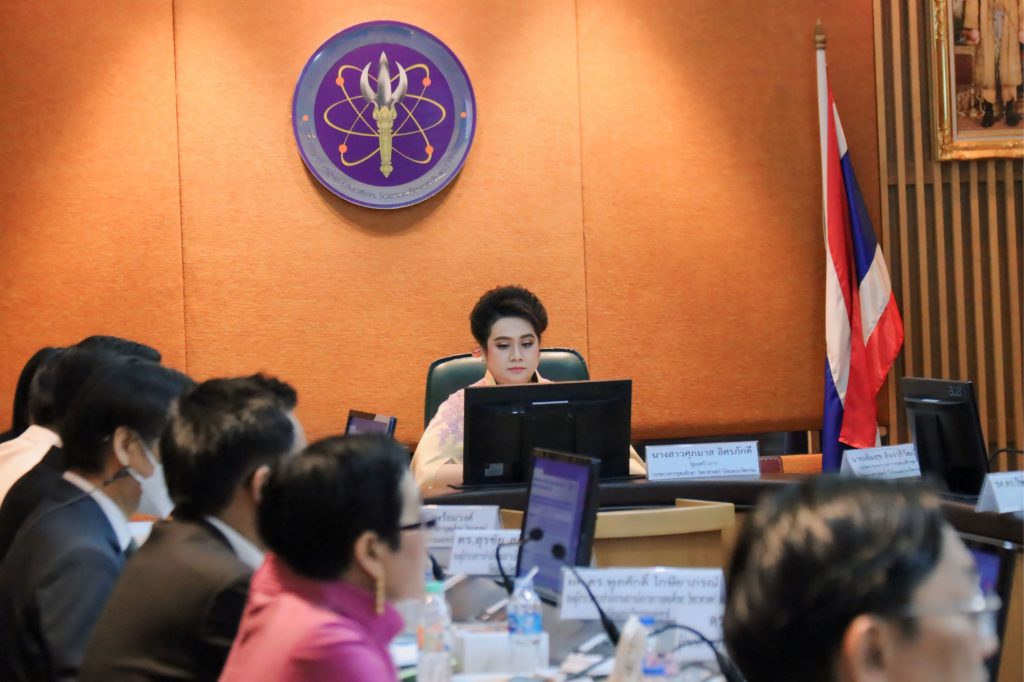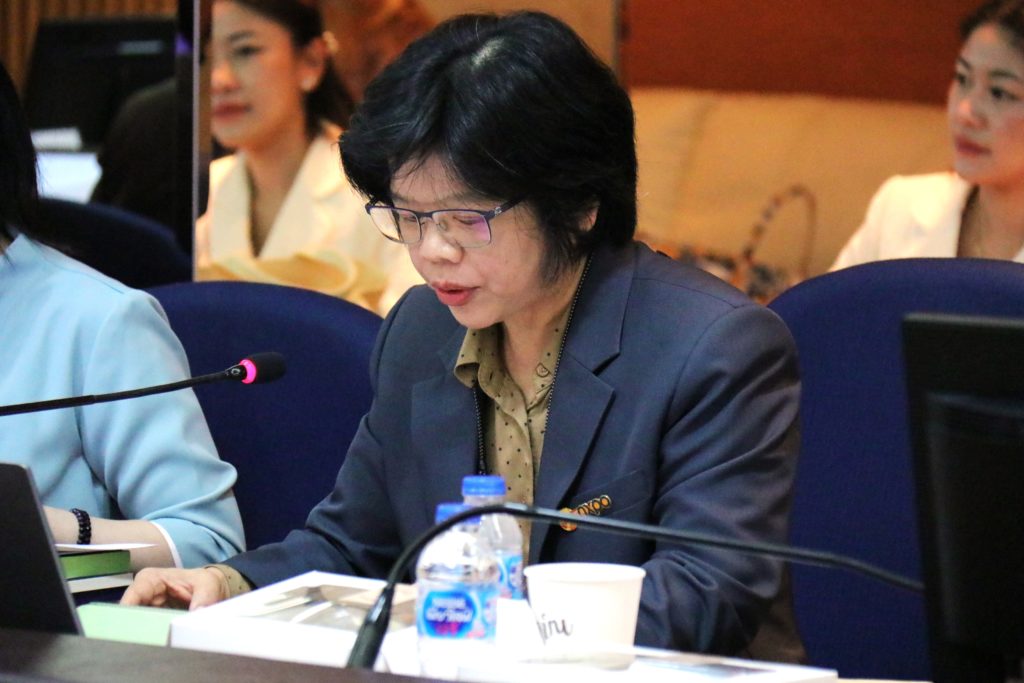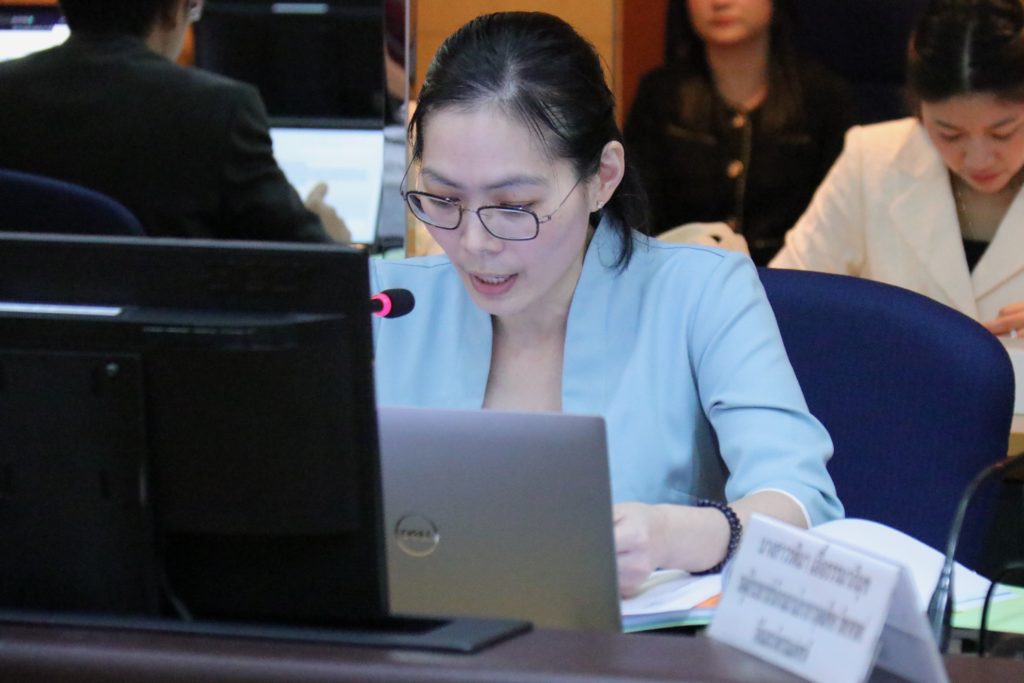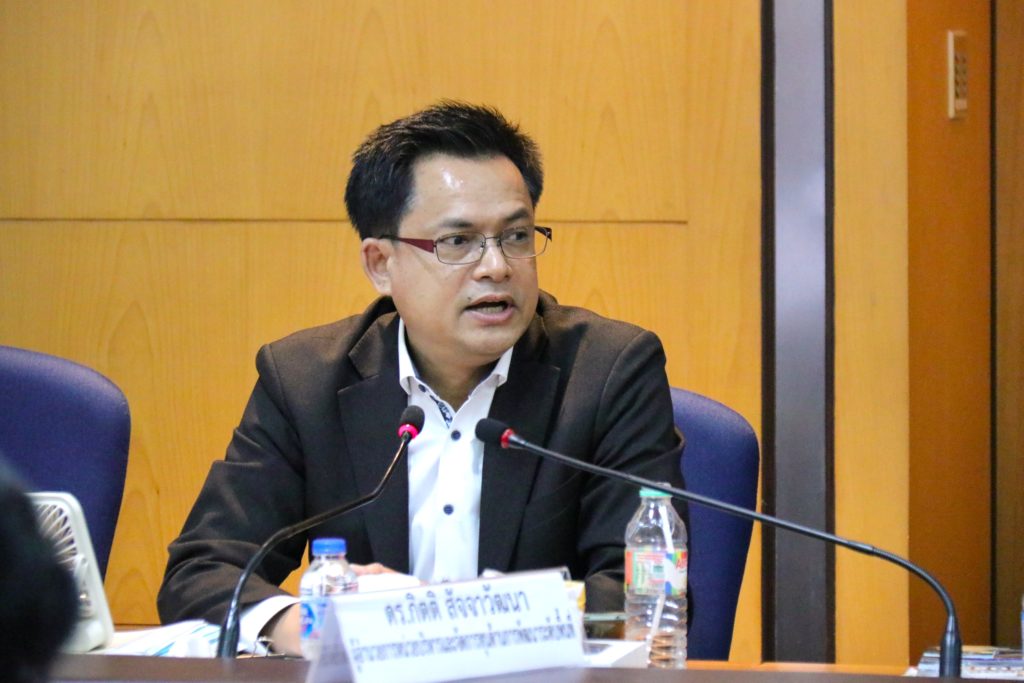On 1 May 2024, NXPO convened the meeting of its Executive Board, chaired by Ms. Supamas Isarabhakdi, Minister of of Higher Education, Science, Research and Innovation.



During the meeting, NXPO President Dr. Kitipong Promwong presented the performance report for the past two quarters, focusing on five key areas: 1) freeing Thailand from the middle-income trap by fostering innovation-driven enterprises (IDEs), 2) promoting upward social mobility by supporting the grassroots economy and reducing social disparities, 3) reducing the GHG emissions by 10 million tons of CO2 equivalent, 4) achieving 25% highly skilled workforce, and 5) enhancing the efficiency of higher education, science, research and innovation system.

“We have established a platform for developing enterprise capacity, enabling them to access both domestic and international markets. Efforts have been made to nurture the future industries and bolster the grassroots economy. In addition, an ecosystem has been cultivated to advance GHG net zero emissions goal, and a platform has been created for developing a highly skilled workforce. The university transformation initiative has been introduced to enhance the efficiency of higher education, science, research and innovation system,” stated Dr. Kitipong.

In the area of future food, Dr. Kitipong emphasized the need to establish low-carbon food production, not only for health and the environment but also for income distribution across the supply chains. Novel food regulations are now in place in several countries, including the US, Singapore, Israel, India, South Korea and Australia. Thailand is the world’s 12th largest food exporter in the world, with a market value of THB 15 trillion and THB 143 billion for future food. The global future food sector, worth THB 14 trillion, is expanding, particularly in functional food, functional ingredients, and alternative proteins.










